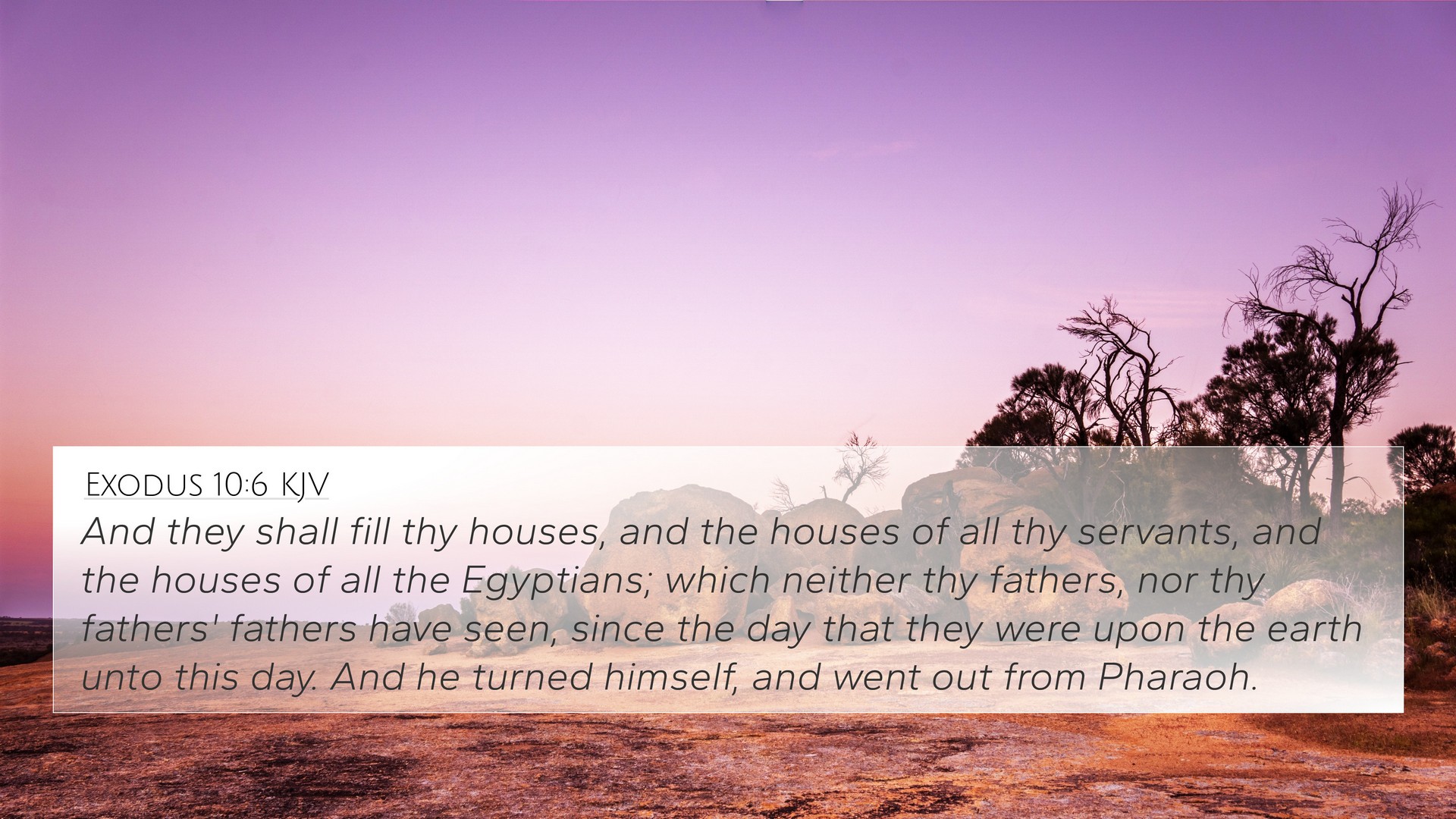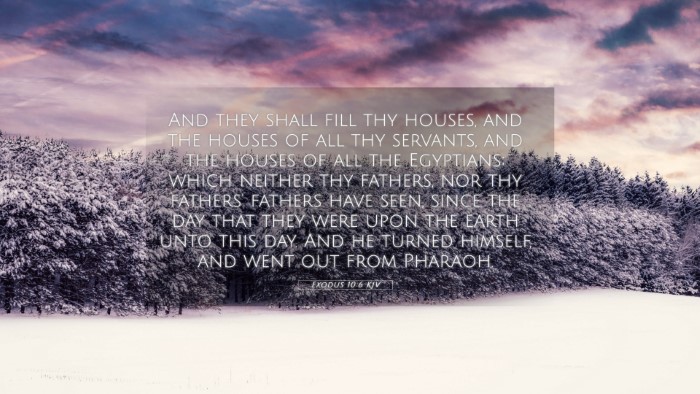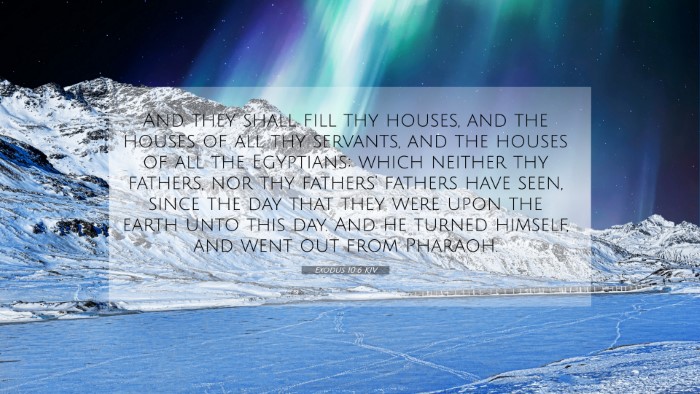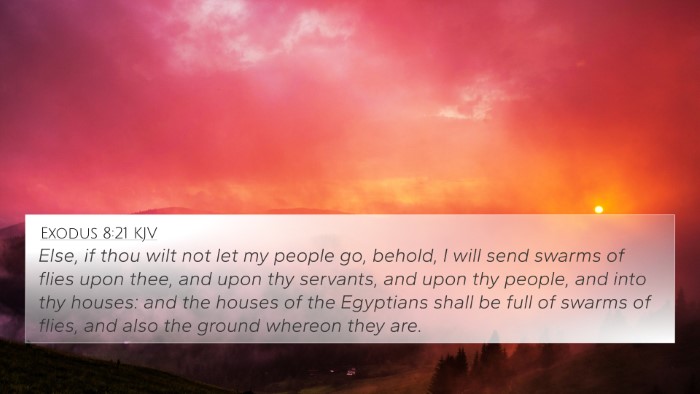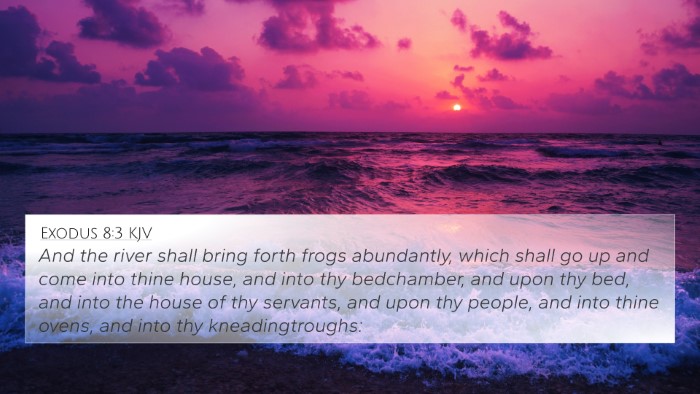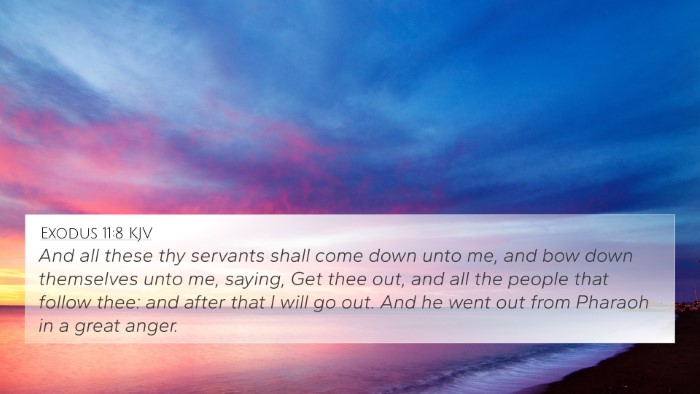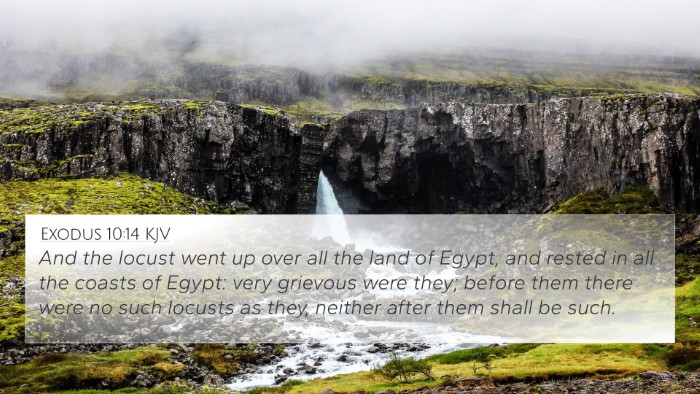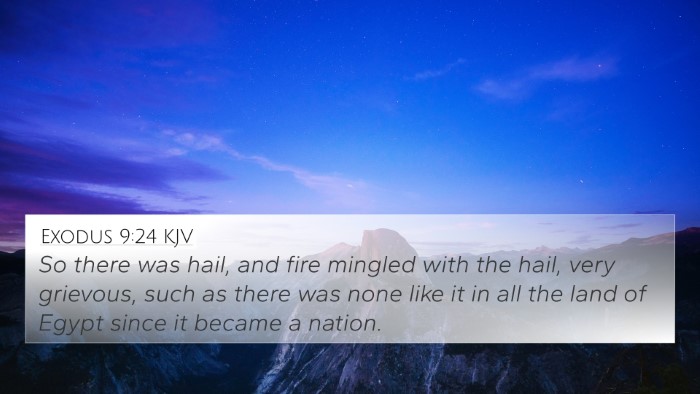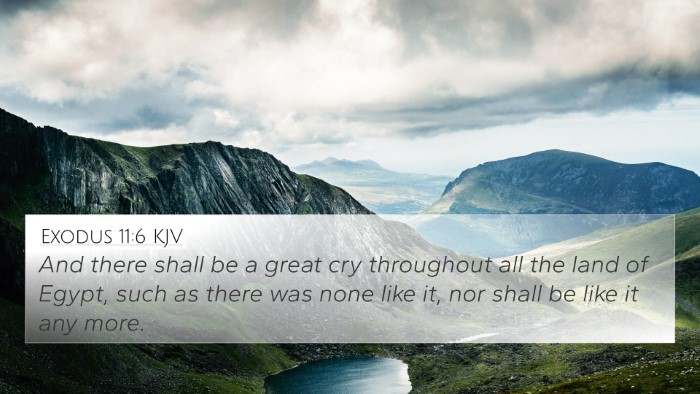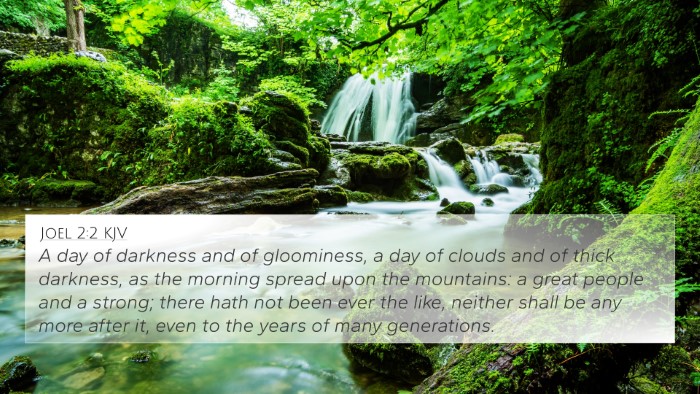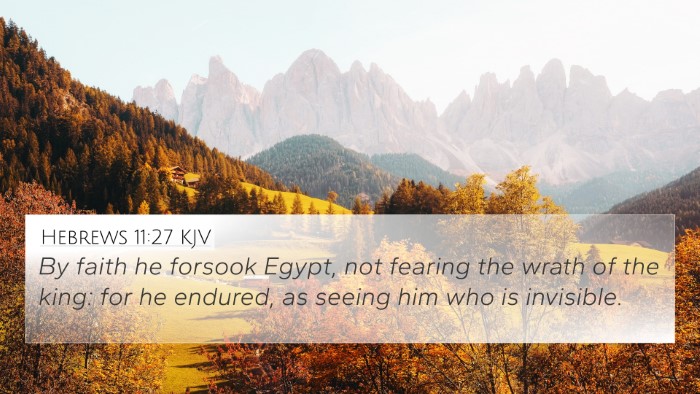Understanding Exodus 10:6
Exodus 10:6 states, "And they shall fill thy houses, and the houses of all thy servants, and the houses of all the Egyptians; which neither thy fathers nor thy fathers' fathers have seen, since the day that they were upon the earth unto this day." This verse describes the devastation brought upon Egypt by the plague of locusts, signifying God's judgment and the severity of the consequences for Pharaoh's disobedience.
Meaning and Importance
This passage emphasizes the overwhelming nature of the locust plague, illustrating that it would not only affect the land but also infiltrate households. The imagery of locusts filling homes underscores the severity of God's displeasure with Egypt's hard-heartedness. The use of the phrase "since the day that they were upon the earth unto this day" signifies that this event was unprecedented in scale and impact.
Commentary Insights
- Matthew Henry: He notes that the plague was made to be comprehensive, targeting every Egyptian household without exception, which served to underline God's power in judgment against oppressive regimes.
- Albert Barnes: He points out that the magnitude of this plague was not only a physical affliction but also a spiritual warning to Pharaoh and the Egyptians. They were given a vivid display of consequences arising from their continued defiance against God.
- Adam Clarke: He emphasizes the historical context, indicating that this event fulfilled a prophetic judgment and highlighted the futility of opposing God's will, indicating that the locusts' presence was not only for punishment but also a call to repentance.
Bible Cross-References
A careful study reveals several Bible verses that relate to Exodus 10:6, illustrating deeper connections and themes:
- Joel 1:4: “That which the palmerworm hath left hath the locust eaten; and that which the locust hath left hath the cankerworm eaten...” - This verse highlights the destructive nature of locusts in the prophetic context.
- Psalm 105:34-35: “He spake, and the locusts came, and caterpillars, and that without number, and did eat up all the herbs in their land...” - Illustrates God's control over creation and judgment.
- Revelation 9:3: “And there came out of the smoke locusts upon the earth...” - A parallel to later biblical uses of locust imagery in apocalyptic literature.
- Exodus 10:4: “Else, if thou refuse to let my people go, behold, tomorrow will I bring the locusts into thy coast...” - Foreshadows the event described in 10:6.
- Deuteronomy 28:38: “Thou shalt carry much seed out into the field, and shalt gather but little in; for the locust shall consume it...” - Highlights consequences in the larger theme of covenant disobedience.
- Matthew 24:32: “Now learn a parable of the fig tree; When his branch is yet tender, and putteth forth leaves, ye know that summer is nigh.” - Although not directly related, it signifies understanding signs as God reveals them.
- Isaiah 33:4: “And your spoil shall be gathered like the gathering of the caterpillar: as the running to and fro of locusts shall he run upon them.” - Reflects similar themes of judgment and destruction.
Connecting Insights
Understanding Exodus 10:6 within the broader narrative of Scripture reveals several thematic connections. The events in this passage are pivotal in the larger story of God's redemption plan through Israel and demonstrate how God’s authority extends over all nations.
The motif of locusts not only signifies divine judgment but also serves as a catalyst to show themes of repentance and the opportunity for change. They are reminders of God's omnipotence and His ability to influence the course of human history. The response of Pharaoh mirrors human nature's tendency to harden in the face of divine revelation.
Tools for Bible Cross-Referencing
To understand the connections between Bible verses more effectively, one can utilize various tools:
- Bible Concordance: Helps locate specific words and their instances in scripture for thematic study.
- Cross-reference Bible Study: Encourages the examination of related verses across the text for deeper insights.
- Bible Reference Resources: These can provide historical context and additional commentary on specific verses.
- Comprehensive Bible Cross-reference Materials: These tools allow for an extensive exploration of biblical themes and their interrelationships.
Conclusion
Exodus 10:6 serves as a profound reminder of God's capability to intervene in human affairs drastically. By studying this verse and its connections to other scriptures, one gains insights into the nature of God's judgment, the rich historical context of Exodus, and the broader redemptive narrative of the Bible. As believers engage in cross-referencing biblical texts, they uncover layers of meaning intended to guide, teach, and invite reflection on the nature of God and His relationship with humanity.
